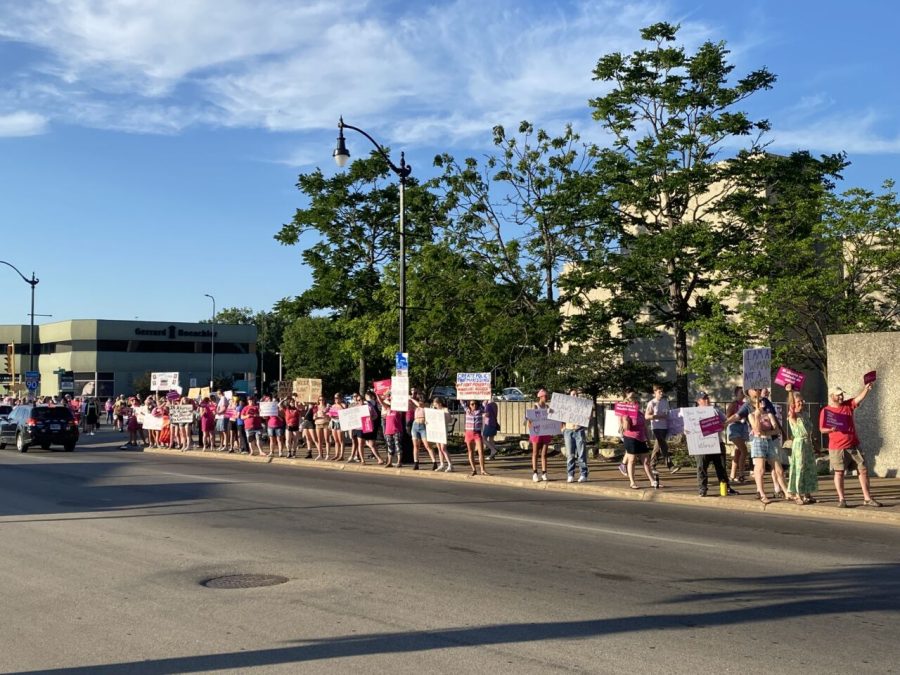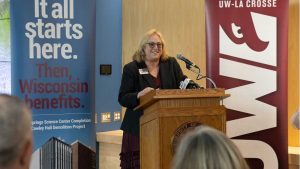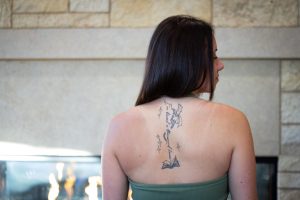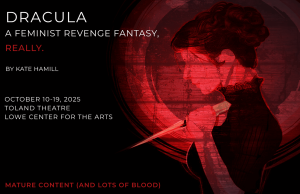“We’re living in a dystopia”: UWL students respond to Roe v. Wade decision
July 12, 2022
On Jan. 22, 1973, in the case of Roe v. Wade, the Supreme Court of the United States (SCOTUS) ruled (6-3) that unduly restrictive state regulation of abortion is unconstitutional, legalizing the procedure on the federal level. On Friday, June 24, 2022, in the case of Dobbs v. Jackson Women’s Health Organization, SCOTUS reversed this decision, declaring that the constitutional right to an abortion, no longer exists, leaving it up to the discretion of the states.
We have reached out to a few University of Wisconsin-La Crosse students for their thoughts and opinions about SCOTUS, and this landmark ruling.
When asked what her initial reaction to the overturning was, UWL senior, Maddie Krolow, said, “My initial reaction was honestly just shock and anger as well as a sinking feeling. I received a text from my mom as soon as I woke up and before I knew it, it was on every news outlet and social media platform.”
Many share the same emotions as Krolow, one being political science student, Hannah Kollath:
“It was honestly one of the biggest mixes of emotions. Initially, I became very emotional because it’s hard to think that one day you have complete bodily autonomy and the next you don’t. It’s hard to believe that this was even possible and that they were able to do it and it’s very defeating.”
Kollath also fears for the future of same-sex marriage, saying “people’s general right to privacy” is also at risk.
The recent SCOTUS ruling allows states to enact laws banning or restricting abortions.
Although the right to abortion is still protected in many states, nine states have laws restricting access to abortions. There are another 12 states which are either likely to pass such laws or have abortion laws that are currently being litigated in courts.
When asked how she views the Supreme Court since the decision, theatre performance major, Kenadi Tossing, said she sees it as a “corrupt oligarchy:”
“The majority of those justices were nominated by presidents who didn’t even win the popular vote and the way the Trump administration rushed justices in was very unethical,” says Tossing, “All recent decisions have been made along ideological lines. The scariest part is we can’t vote these people out. They have the power to change things for generations to come and not see any of the fallout from it. It’s so messed up.”
Although anyone who may become pregnant can now face criminal charges under these stricter, state laws, women of color—black women in particular—will continue to be targeted at disproportionately higher rates than their white counterparts. Some are referring to this era as the “new Jane Crow.”
“Safe abortions will still be happening for people that can afford to cross state lines,” Krolow says, “or for rich white women that don’t want to be pregnant. It’s not a coincidence that these populations will be hit the hardest…”
Americans on the “pro-choice” side of the abortion debate argue that cases of incest and/or sexual assault should be the exception to criminalization.
Kollath strongly agrees with this saying the following:
“Black and indigenous women, and women of color (BIPOC) are already more likely to die due to pregnancy complications than white women, not to mention BIPOC communities are at an increased risk for victimization, including sexual victimization, which could result in unwanted pregnancies in women that have been assaulted, [who] now have no option but to have that child after going through a major trauma.”
To those who feel the political climate of our country is too polarizing, and that we may never find common ground, Tossing offers this hopeful sentiment:
“We can’t give up because our livelihood depends on it. In terms of getting involved, start local. You don’t have to have a huge platform and have the most eloquent speech to make a difference. Go to a rally, call or email your representatives, speak out on social media, and most importantly, continue to have conversations. The only way anything will ever get better is if we learn how to talk to each other because we all have more common ground than we think.”







